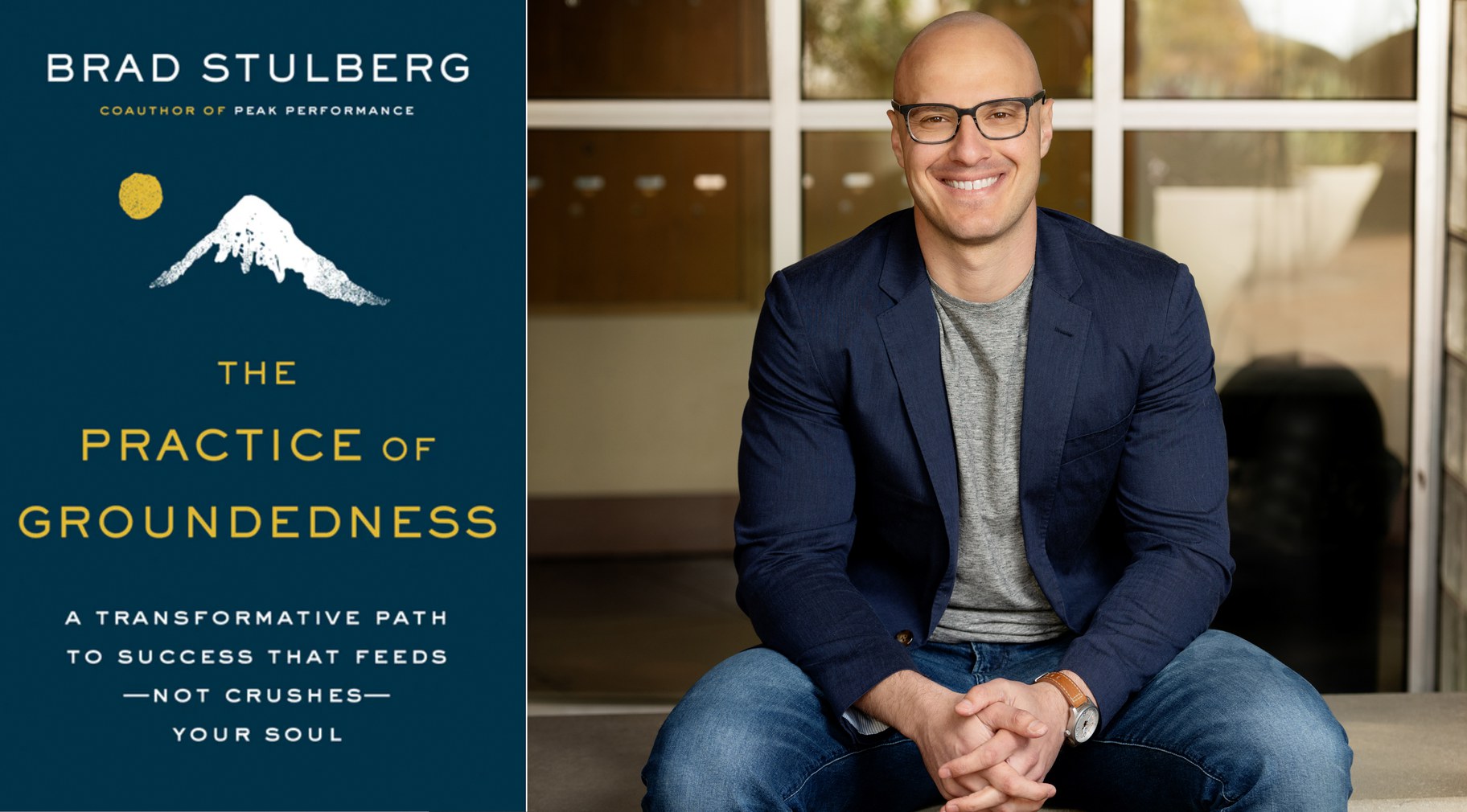Warning: This episode contains discussions of mental illness and suicide that may be inappropriate for children and upsetting for some listeners.
Jonathan Bastian talks with Brad Stulberg, coach, writer and author of “The Practice of Groundedness: A Transformative Path to Success that Feeds – Not Crushes – Your Soul,” about some of the secrets and habits of being better at what we do - whether it’s a work or in our private lives. Stulberg shares some of the data and latest research of living our full potential.
“Purely from an achievement standpoint, we know that undertaking big challenges in groups of like minded others leads to a much higher success rate,” says Stulberg. “Having a community holds you accountable, if you've got a team, you have to be there for them… and your community provides a safety net. … They're there for you, to support you.” Stulberg explains that community makes success more fun, happiness is best shared.
“At the end of our lives people don't say what made my life meaningful was the gold medal, the C-suite, or hitting the bestseller list. What made my life meaningful were my training partners, or the team of people that I worked with or the people that I met along the way,” Stulberg says.
Delve deeper into life, philosophy, and what makes us human by joining the Life Examined discussion group on Facebook.
Brad Stulberg suggests an alternative approach that may achieve more lasting results. Focus more on the process and less on the outcome; consistency is more important than intensity and when it comes to finding the motivation no one ever reaches the top alone – It’s ok to lean on others.
“We tend to celebrate these heroic efforts and the truth is that if you try to be heroic too often, again, it inevitably ends in injury, illness or burnout. Whereas if you can show restraint, and you can stop a little bit short, you can string together consecutive efforts over a month, over a year, perhaps even over a decade and that's where you really get the best, most sustainable, biggest results,” he says.
Stolberg cares deeply about ways to healthily sustain excellence in our lives. Stolberg also opens up about his own struggles with OCD (obsessive compulsive disorder) and excessive anxiety. In a candid and honest conversation, Stolberg shares what it means to have “intrusive thoughts” and talks briefly about how intrusive thoughts can include self harm, suicidality, and pedophilia and how, in fact, a vast majority of people have intrusive thoughts. An open conversation about mental disorders is a way to move past the stigma and becomes part of the healing process.
In the word “compassion,” “co” is “with” and “passion” is the root for “suffer,” Stolberg explains. “So it's ‘to suffer with.’ And if there's any value to going into these dark woods, it is that we become more compassionate. It's that compassion in those shared experiences that connects us. It's why me and you can have this rich conversation, which I would argue does give life meaning.”

“Good enough over and over again eventually becomes great,” says author Brad Stulberg. “Whereas if you try to be great every day, that's a high bar and it's a bar that’s likely to lead to you flaming out.” Photo courtesy of Brad Stulberg. In “The Practice of Groundedness: A Transformative Path to Success that Feeds – Not Crushes – Your Soul,” author Brad Stulberg says, “getting your sense of groundedness and your sense of self worth from being enmeshed in a community is so much healthier and more sustainable than getting it from external outcomes.”
If you need to talk, contact the National Suicide Prevention Lifeline at 800-273-8255.
Delve deeper into life, philosophy, and what makes us human by joining the Life Examined discussion group on Facebook.
